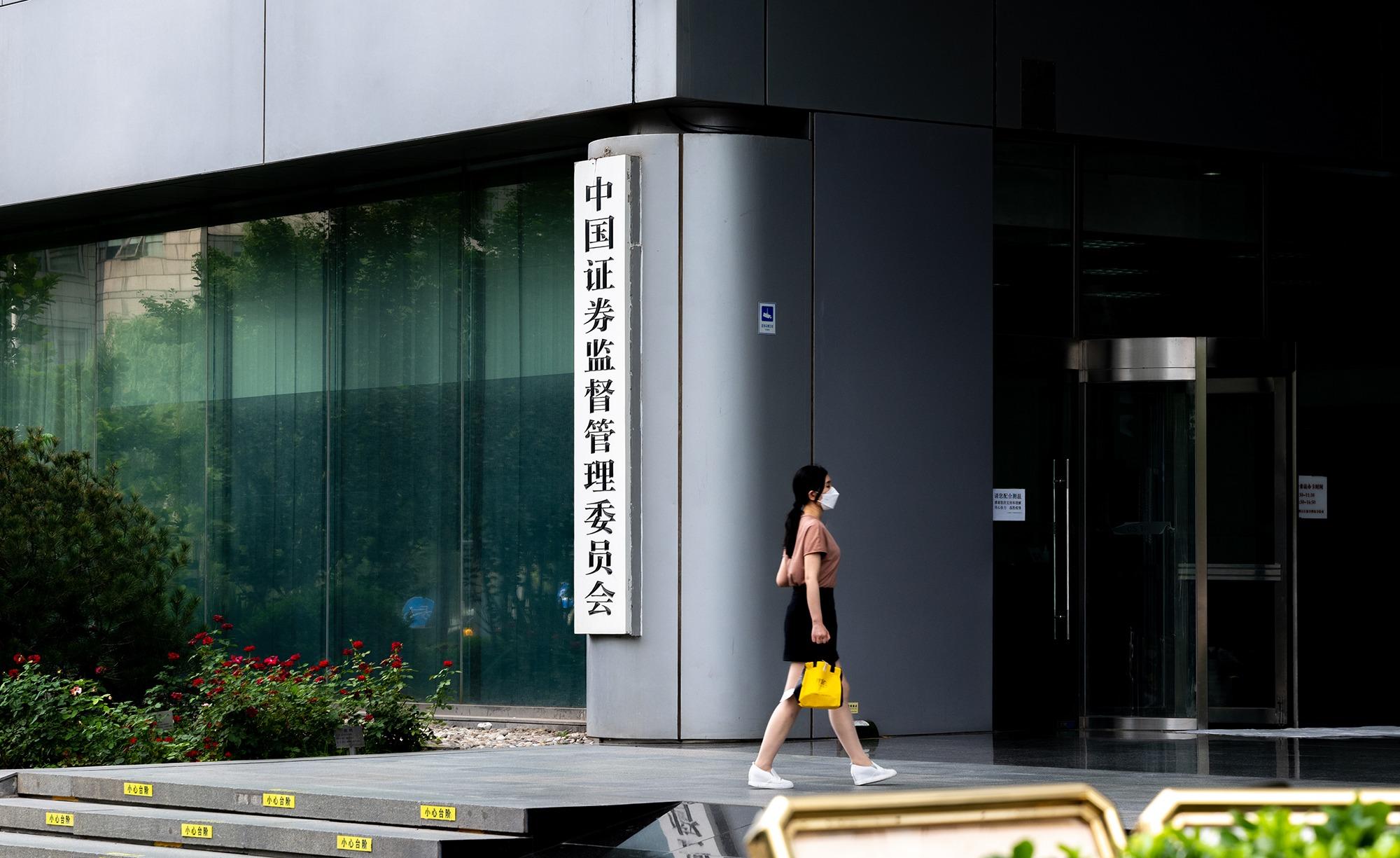CSRC's recent moves raise fresh hopes that bourses will become more stable
 A pedestrian walks past the China Securities Regulatory Commission in Beijing. (PROVIDED TO CHINA DAILY)
A pedestrian walks past the China Securities Regulatory Commission in Beijing. (PROVIDED TO CHINA DAILY)
Chinese financial regulators' recent efforts to step up supervision and clamp down on illegal activities will help further improve the capital market ecosystem and inject more confidence into the market, said experts.
During a symposium held on Tuesday, Wu Qing, chairman of the China Securities Regulatory Commission, the nation's top securities regulator, said the capital market usually has high requirements in terms of regulation.
READ MORE: China to enhance combat of securities market violations
It is based on the rule of law so that the market can prosper. The CSRC will improve the efficiency in law enforcement and strengthen judicial guarantees so that the rule of law can play a greater role in the high-quality development of the capital market by consolidating its basis and stabilizing expectations, he said.
Participants in the symposium suggested that lawmaking or legislative amendments related to the supervision of listed companies, securities firms, investment funds and bonds, should be accelerated.
According to Tian Lihui, director of the Institute of Finance and Development at Nankai University, building an investor-based market is inseparable from the rule of law, including instituting an investor protection mechanism, strengthening information disclosure and strictly cracking down on violations. Only in this way can the market become fairer and transparent, leading to higher returns and the sustainability in financing, he said.
In response to earlier media reports that regulators will restrict direct market access-swap or DMASwap, a business in which private equity firms borrow from brokerages to trade, a CSRC spokesperson said on Wednesday that steadily reducing leverage in the DMA business is conducive to risk prevention and control as well as the market's stable operation.
In the DMA business, PE firms with long positions invest in a basket of stocks and use stock index futures as a hedge. Returns are generated from such hedging, explained the CSRC spokesperson.
Some PE firms suffered losses due to market volatility in the past and have been actively reducing exposure to such business, especially after trading resumed after the Spring Festival holiday. DMA-Swap products only account for about 3 percent of the A-share market's daily trading volume now, according to the CSRC.
But oversight of over-the-counter derivative business such as DMA will be strengthened nevertheless, with the trading mechanism completed. The industry size and leverage will be controlled with better guidance. Violations will be cracked down upon to secure the stable operation of the market, said the CSRC.
Separately, the China Financial Futures Exchange announced late Wednesday that Shanghai Weiwan Fund Management and its actual controllers will be punished for exceeding the limit in trading stock index futures and failing to declare accounts with actual control relationships as required.
Three product accounts under Weiwan and two natural person accounts belonging to Weiwan's actual controllers will be barred from opening positions for 12 months. More than 8.9 million yuan ($1.24 million) worth of illegal gains will be confiscated, according to the CFFEX's announcement.
ALSO READ: Capital market in China grows stronger
The CSRC said later that it will work with the CFFEX to tighten scrutiny over high-frequency trading and crack down on misbehavior.
Gao Chao, chief researcher for nonbanking finance at Kaiyuan Securities, said that regulators have stepped up supervision as well as crackdowns on violations after Spring Festival. Such strong signals will help consolidate investor confidence and facilitate the healthy development of the capital market.
The CSRC announced six cases of punishment on Feb 22 regarding market manipulation and insider trading. On Feb 20, both the Shanghai and Shenzhen exchanges announced a three-day trading ban on leading quant fund Lingjun Investment for abnormal sell-offs a day earlier.
The A-share market responded positively to the regulators' latest moves. The benchmark Shanghai Composite Index gained 1.94 percent to close at 3015.17 points on Thursday while the Shenzhen Component Index spiked 3.13 percent.
Total trading value on the two bourses topped 1.05 trillion yuan on Thursday. Northbound capital — funds that overseas investors use to buy A shares via the stock connect program linking the Shanghai, Shenzhen and Hong Kong bourses — reported a net inflow of 16.6 billion yuan.


